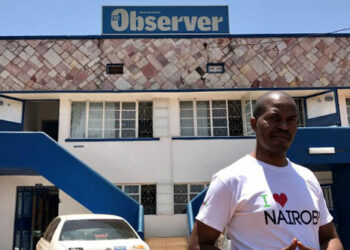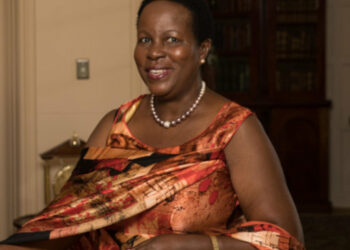By Andrew M. Mwenda
On Thursday March 15th, the Electoral Commission declared FDC candidate, Paul Mwiru, elected as MP for Jinja East constituency. Since then, opposition gurus have been congratulating themselves on a “big win by the people.” Which people? Yet the results, when properly analyzed, expose the weakness of the opposition in Uganda -and how/why they consistently lose elections.
It is commonly assumed that FDC’s base of support is in urban areas. Jinja is the second largest urban area in Uganda. So winning that seat should have been an easy job. Yet in spite of deploying everyone of their heavy weights: their cult leader Kizza Besigye, party president Amuriat, former party president, the noble Mugisha Muntu and adding there empty-headed Bobi Wine and DP’s suave and moderate Norbert Mao – few voters showed up to vote and Mwiru won by a very narrow margin.
Let us look at the numbers: Total number of registered voters was 29,000. Of these only about 11,958 (40%) showed up to vote. Mwiru got 6,654 votes (21% of the registered voters). Meanwhile NRM’s Nathan Nabeta Igeme got 5,043, meaning Mwiru beat him by paltry 1,600 votes in a constituency that should be an easy landslide win for the FDC. Therefore FDC has an MP who was not voted by 80% of the registered voters – in its stronghold. Sad!
This tells us two things: either the assumption that the opposition is strong in urban areas is wrong, or the opposition lack basic organizational infrastructure to rally its supporters in its strongholds to bring them to vote on polling day. I am increasingly coming to believe that both insights are correct, the first causing the second: the opposition don’t have much support even in urban areas. And as a consequence they lack individuals with leadership and organizational skills to rally voters on their side.
This inability to register high voter turnout in their presumed strongholds is the reason Besigye can NEVER win an election as president and the opposition has failed to grow in parliament. In 2016 presidential elections, only 800,000 voters out of 2m registered voters (40%) showed up to vote in Kampala city and its surrounding Wakiso district. Besigye claimed this low voter turnout was due to late delivering of ballot papers which “disenfranchised” many of his voters.
What kept 60% of the voters in Jinja East (just like in the 2016 presidential election) from the polling booth? Indeed in the 2017 by-election in Kyadondo East, a similar pattern was witnessed. Total registered voters was 72,818. Total voter turnout in 33,310 or 45%. Bobi Wine won. This consistent low voter turnout in supposedly opposition strongholds is the main explanation for their poor performance.
If you look at the strongholds of president Yoweri Museveni, especially in the cattle corridor, voter turnout on some polling stations in Nyanushozi, Kazo, Nakaseke and Rwampara is 100%. This is actually evidence of rigging. But it shows his ability to rally his base. You can only rig when you are strong.
If Uganda’s confused opposition can rally 90% of registered voters to show up and vote in their strongholds, their chances of winning would be considerably improved. But they have chosen to keep crying foul, claiming someone steals their votes. Nonsense!
Message especially to Besigye and his radical extremists: I have told you before that when you cannot count what is important, then you make what you are counting important. You have refused to accept low voter turnout as important in your electoral miseries. So you have decided to focus on crying foul at vote rigging and made it your battle cry. You can keep finding excuses for your defeat in every election, clutching on every straw. It is comforting. But it is blinding you to your strategic weaknesses which you need to fix if you ever intend to improve your performance.
Do you have a story in your community or an opinion to share with us: Email us at editorial@watchdoguganda.com











